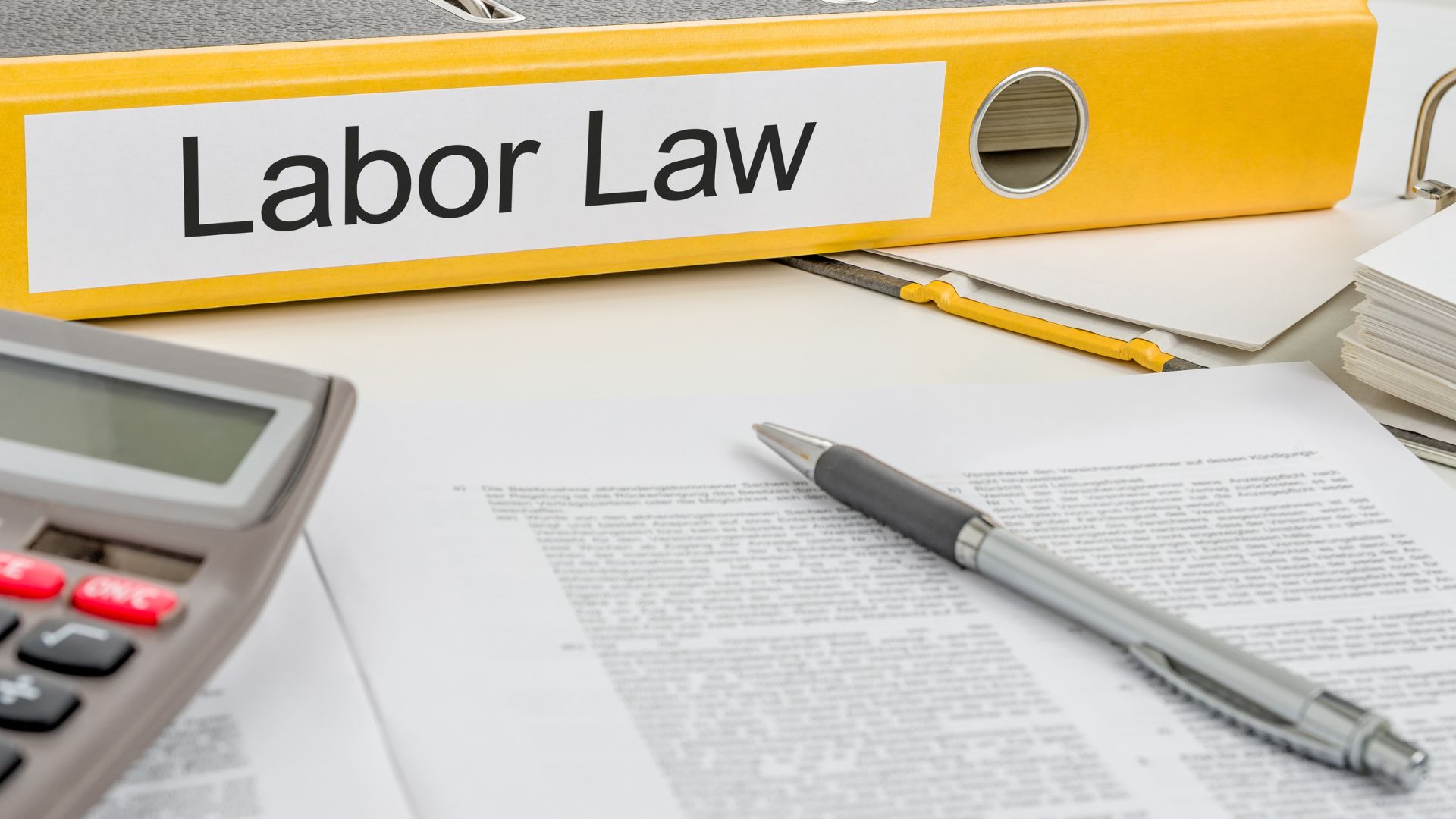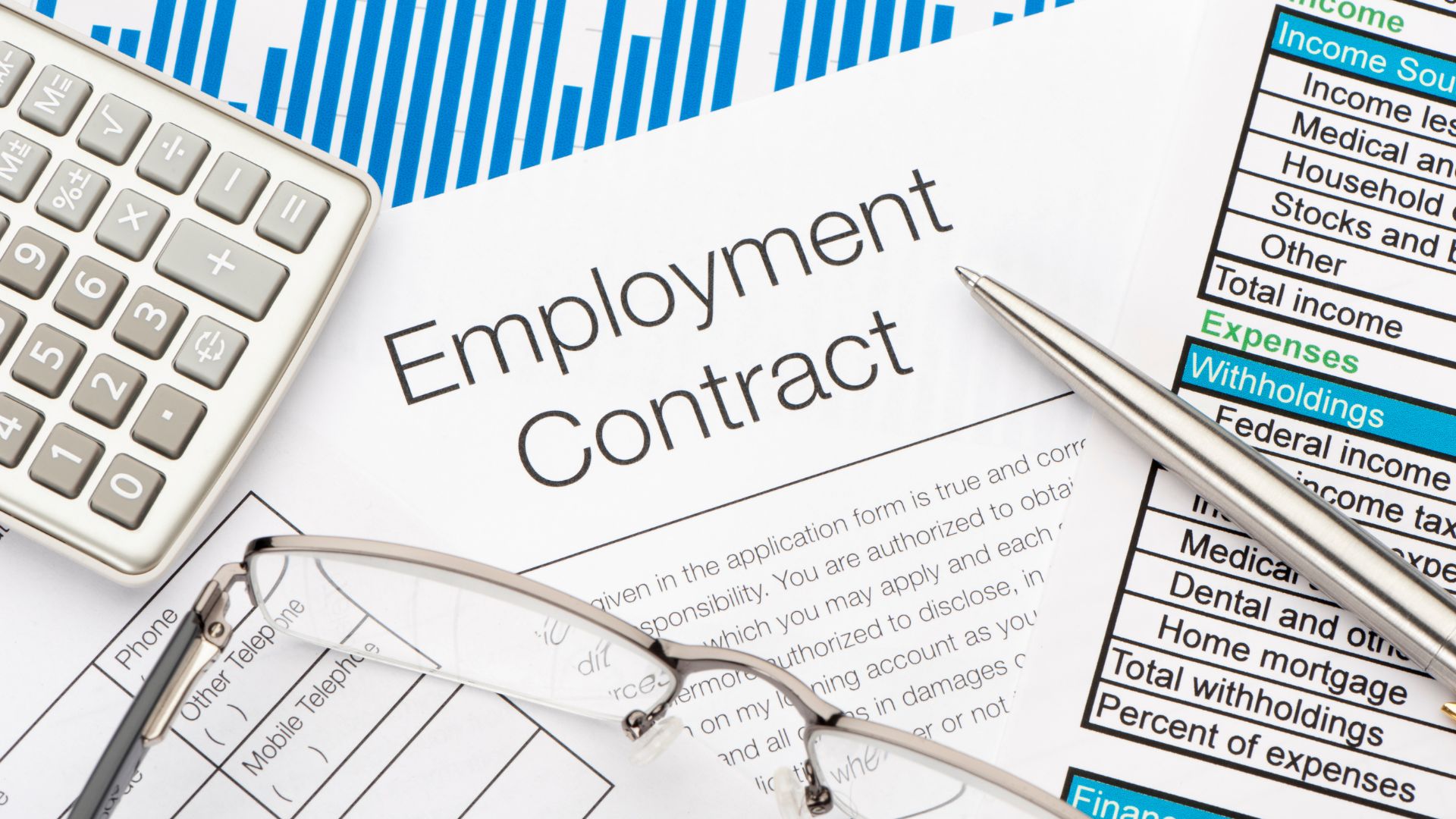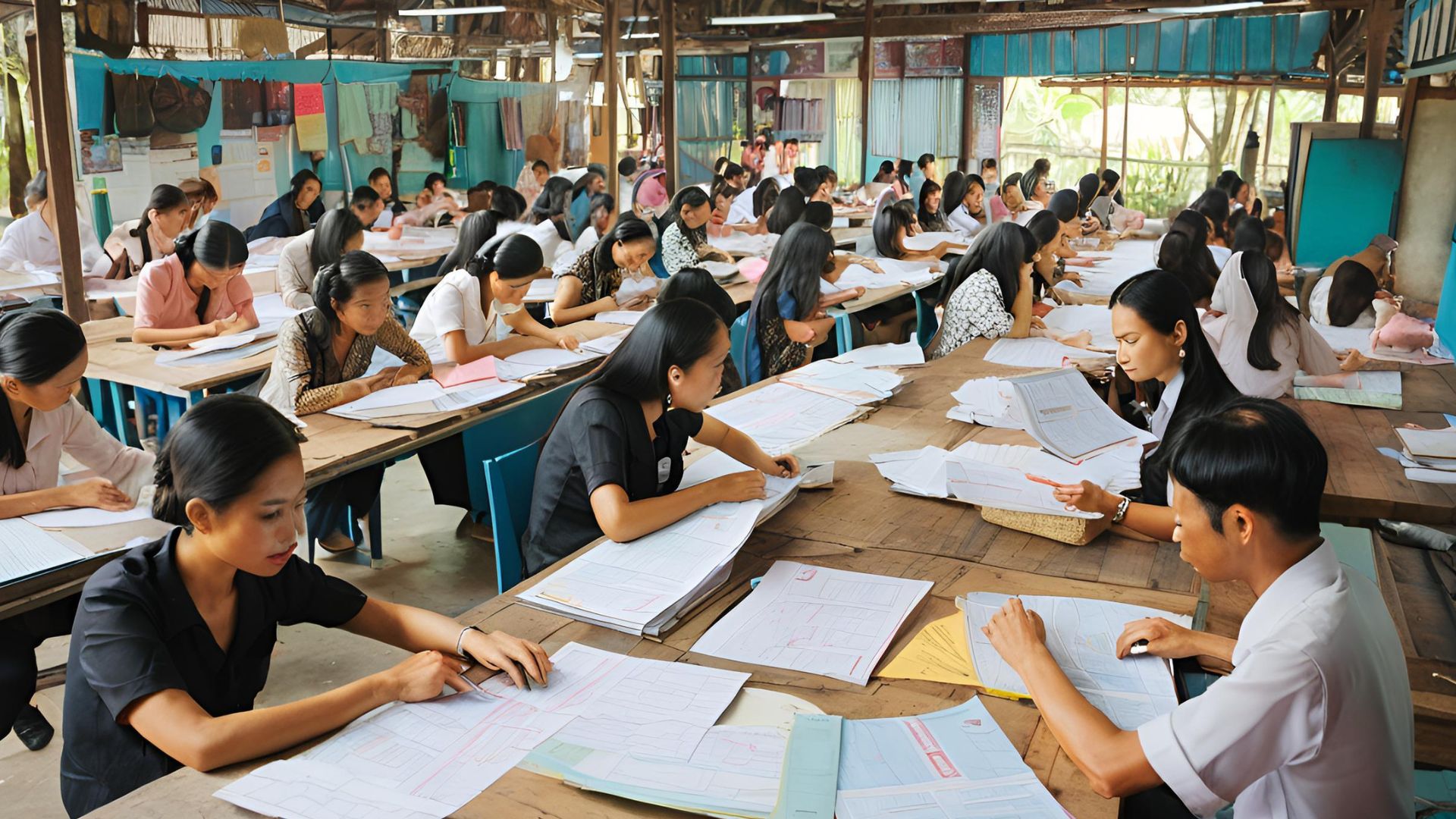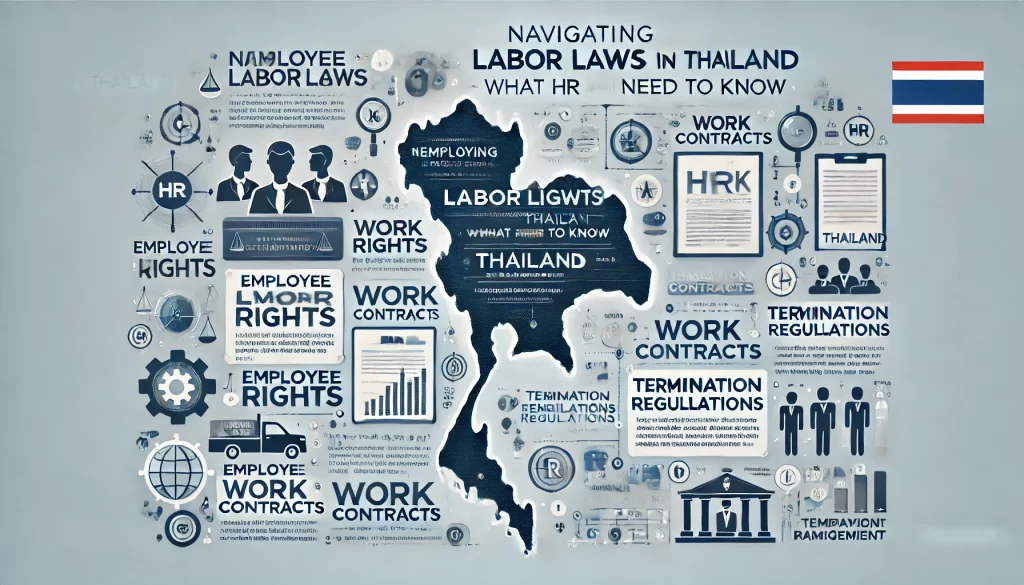Are you an HR manager struggling to navigate the complex maze of labor laws in Thailand? 🇹🇭 You’re not alone. With its unique blend of traditional values and modern business practices, Thailand presents a challenging landscape for human resources professionals.
Did you know that misunderstanding even one aspect of Thai labor law could lead to costly legal battles and damage your company’s reputation? From intricate employment contracts to stringent workplace safety standards, the rules can seem overwhelming. But fear not! Whether you’re dealing with foreign worker permits or grappling with termination procedures, we’ve got you covered.
In this comprehensive guide, we’ll walk you through the essential aspects of Thai labor laws that every HR manager needs to master. We’ll explore everything from the basic legal framework to the nuances of collective bargaining and dispute resolution. By the end, you’ll be equipped with the knowledge to confidently navigate Thailand’s labor landscape, ensuring compliance and fostering a harmonious work environment. Let’s dive in and unravel the complexities of Thai labor laws together! 💼📚
Overview of Thailand’s Labor Law Framework

A. Key legislation governing employment
Thailand’s labor law framework is primarily governed by several key pieces of legislation that HR managers must be familiar with:
- Labour Protection Act (LPA) of 1998
- Labour Relations Act of 1975
- Social Security Act of 1990
- Workmen’s Compensation Act of 1994
- Occupational Safety, Health and Environment Act of 2011
These laws form the foundation of employment regulations in Thailand, covering various aspects of the employer-employee relationship. Let’s examine their key features in the table below:
| Legislation | Key Areas Covered |
|---|---|
| Labour Protection Act | Working hours, holidays, leave, overtime, minimum wage |
| Labour Relations Act | Labor unions, collective bargaining, dispute resolution |
| Social Security Act | Employee benefits, welfare schemes, retirement |
| Workmen’s Compensation Act | Work-related injuries, illnesses, compensation |
| Occupational Safety Act | Workplace safety standards, health regulations |
B. Role of the Ministry of Labour
The Ministry of Labour plays a crucial role in enforcing and implementing labor laws in Thailand. Its responsibilities include:
- Formulating labor policies and regulations
- Inspecting workplaces for compliance
- Mediating labor disputes
- Providing employment services and skill development programs
- Overseeing social security and welfare systems
C. Recent updates and amendments
Thailand’s labor laws have undergone several recent updates to address changing workforce dynamics and economic conditions. Some notable changes include:
- Increased maternity leave from 90 to 98 days
- Enhanced protection for temporary and contract workers
- Stricter penalties for non-compliance with labor regulations
- Expanded coverage of the Social Security Act
HR managers must stay informed about these updates to ensure compliance and maintain positive employee relations. As labor laws continue to evolve, it’s crucial to regularly review and adapt HR policies and practices accordingly.
Employment Contracts and Working Hours

Types of employment contracts
In Thailand, HR managers must be familiar with the following types of employment contracts:
- Fixed-term contracts
- Indefinite-term contracts
- Specific project contracts
- Seasonal contracts
| Contract Type | Duration | Key Features |
|---|---|---|
| Fixed-term | Specified period | Clear end date, no severance pay |
| Indefinite-term | Ongoing | No specified end date, severance pay required |
| Specific project | Until project completion | Ends when project is finished |
| Seasonal | Recurring periods | Common in agriculture and tourism |
Standard working hours and overtime regulations
Thai labor law stipulates that standard working hours should not exceed 8 hours per day or 48 hours per week. Overtime is permitted but limited to:
- Maximum 36 hours per week
- Must be voluntary
- Requires written consent from the employee
Overtime compensation rates:
- Weekdays: 1.5 times regular hourly wage
- Holidays: 3 times regular hourly wage
Rest periods and public holidays
Employers must provide:
- At least one hour of rest during a regular workday
- A minimum of one day off per week
Thailand observes 13 public holidays annually. Employees working on these days are entitled to double pay.
Leave entitlements
Thai labor law mandates various types of leave:
- Annual leave: Minimum 6 days after one year of employment
- Sick leave: Up to 30 days per year with pay
- Maternity leave: 98 days, including 45 days with full pay
- Military service leave: As required by law
Employers may offer additional leave benefits to attract and retain talent in the competitive Thai job market.
Compensation and Benefits

Minimum wage requirements
Thailand’s minimum wage system is crucial for HR managers to understand. As of 2023, the daily minimum wage varies by province, ranging from 328 to 354 baht. Here’s a breakdown of the minimum wage in key regions:
| Region | Daily Minimum Wage (Baht) |
|---|---|
| Bangkok | 354 |
| Phuket | 354 |
| Chonburi | 345 |
| Chiang Mai | 340 |
| Udon Thani | 335 |
HR managers must ensure compliance with these rates, which apply to all employees regardless of nationality.
Salary structure and payment regulations
When structuring salaries in Thailand, HR managers should consider:
- Regular working hours (8 hours per day, 48 hours per week)
- Overtime rates (at least 1.5 times the hourly wage)
- Holiday pay (double the regular rate)
Payments must be made at least once a month, and employers are required to maintain detailed salary records.
Mandatory social security contributions
Both employers and employees must contribute to Thailand’s Social Security Fund. The contribution rates are:
- Employer: 5% of salary (capped at 750 baht per month)
- Employee: 5% of salary (capped at 750 baht per month)
These contributions cover various benefits, including:
- Injury or sickness benefits
- Maternity benefits
- Disability benefits
- Death benefits
- Child allowance
- Old-age pension
- Unemployment insurance
Severance pay and termination benefits
Severance pay is a critical aspect of Thai labor law. The amount depends on the employee’s length of service:
- 120 days to 1 year: 30 days’ wages
- 1-3 years: 90 days’ wages
- 3-6 years: 180 days’ wages
- 6-10 years: 240 days’ wages
- 10-20 years: 300 days’ wages
- 20+ years: 400 days’ wages
HR managers should note that these provisions apply to terminations without cause. Special rules may apply for misconduct or company restructuring.
Workplace Safety and Health Standards

Employer responsibilities for safety
In Thailand, employers are legally obligated to ensure a safe and healthy work environment for their employees. This responsibility encompasses various aspects, including:
- Risk assessment and mitigation
- Regular safety inspections
- Provision of personal protective equipment (PPE)
- Maintaining proper ventilation and lighting
- Implementing emergency procedures
To effectively manage workplace safety, employers should establish a comprehensive safety management system. This system should include policies, procedures, and regular audits to identify and address potential hazards.
| Key Responsibility | Description |
|---|---|
| Risk Assessment | Identify and evaluate potential workplace hazards |
| Safety Inspections | Conduct regular checks to ensure compliance with safety standards |
| PPE Provision | Supply appropriate protective gear for specific job roles |
| Emergency Planning | Develop and communicate evacuation and emergency response plans |
Required safety training and equipment
Employers in Thailand must provide adequate safety training and equipment to their workforce. This includes:
- Conducting regular safety orientation sessions for new employees
- Offering job-specific safety training for high-risk roles
- Providing refresher courses on safety procedures
- Ensuring all equipment meets Thai safety standards
Safety equipment requirements vary depending on the industry but may include:
- Hard hats and safety shoes for construction workers
- Respirators and protective suits for chemical handlers
- Fire extinguishers and first aid kits in all workplaces
Reporting and handling workplace accidents
When accidents occur, Thai labor laws mandate a specific process for reporting and handling:
- Immediate reporting of accidents to supervisors
- Proper documentation of the incident
- Investigation of the cause and contributing factors
- Implementation of corrective measures to prevent recurrence
Employers must maintain accurate records of all workplace accidents and submit reports to the relevant authorities as required by law. This data helps in identifying trends and improving overall workplace safety standards across industries in Thailand.
Foreign Workers and Work Permits

Visa requirements for foreign employees
Foreign workers in Thailand must obtain the appropriate visa before entering the country. The most common visa for employment purposes is the Non-Immigrant B Visa. This visa allows foreigners to work legally in Thailand and is typically valid for 90 days. HR managers should be aware of the following key requirements:
- Valid passport with at least 6 months validity
- Completed visa application form
- Recent passport-sized photographs
- Letter of approval from the Ministry of Labor
- Invitation letter from the employing company in Thailand
Work permit application process
Once in Thailand, foreign employees must apply for a work permit. The process involves several steps:
- Gather required documents (e.g., passport, visa, educational certificates)
- Submit application to the Department of Employment
- Pay the application fee
- Undergo an interview (if required)
- Collect the work permit upon approval
| Document | Purpose |
|---|---|
| Passport | Proof of identity |
| Non-Immigrant B Visa | Legal entry for work |
| Educational certificates | Qualifications verification |
| Company documents | Employer verification |
Quota restrictions and exceptions
Thailand imposes quota restrictions on the number of foreign workers a company can employ:
- General rule: 1 foreign worker per 4 Thai employees
- Exceptions for promoted companies under the Board of Investment (BOI)
- Special considerations for certain industries or specialized positions
Penalties for non-compliance
Non-compliance with work permit regulations can result in severe penalties:
- Fines up to 100,000 THB for working without a permit
- Imprisonment for up to 5 years
- Deportation and blacklisting from future entry
- Penalties for employers hiring illegal workers
HR managers must ensure strict adherence to these regulations to avoid legal issues and maintain a compliant workforce.
Discrimination and Equal Opportunity Laws

Protected characteristics under Thai law
In Thailand, labor laws protect workers from discrimination based on several characteristics. These include:
- Gender
- Age
- Nationality
- Religion
- Disability
- HIV/AIDS status
It’s crucial for HR managers to understand these protected characteristics to ensure compliance with Thai labor laws and promote a fair workplace environment.
| Protected Characteristic | Examples of Prohibited Discrimination |
|---|---|
| Gender | Unequal pay for equal work, biased promotion practices |
| Age | Refusing to hire older workers, forced retirement |
| Nationality | Denying employment based on country of origin |
| Religion | Preventing religious practices, biased treatment |
| Disability | Lack of reasonable accommodations, unfair dismissal |
| HIV/AIDS status | Mandatory testing, unfair treatment based on status |
Hiring and promotion practices
To ensure compliance with anti-discrimination laws, HR managers should:
- Implement objective hiring criteria
- Use standardized interview questions
- Provide equal training opportunities
- Establish clear promotion pathways
- Regularly review compensation practices
Addressing workplace harassment
Workplace harassment is a serious issue that HR managers must address proactively. Key steps include:
- Developing a clear anti-harassment policy
- Providing regular training on harassment prevention
- Establishing confidential reporting mechanisms
- Conducting thorough investigations of complaints
- Taking appropriate disciplinary action when necessary
By implementing these measures, HR managers can create a more inclusive and respectful work environment while staying compliant with Thai labor laws.
Labor Unions and Collective Bargaining

Rights of workers to form unions
In Thailand, workers have the legal right to form and join labor unions. This right is protected under the Labour Relations Act B.E. 2518 (1975). Key points to consider:
- Minimum requirements: At least 10 employees can form a union
- Registration: Unions must register with the Ministry of Labour
- Protection: Union members are protected from discrimination and unfair dismissal
Collective bargaining process
The collective bargaining process in Thailand involves negotiations between employers and employee representatives. Important aspects include:
- Initiation: Either party can initiate the process
- Negotiation: Discussions on wages, benefits, and working conditions
- Agreement: Binding for a specified period, usually 1-3 years
- Dispute resolution: Mediation or arbitration if an agreement can’t be reached
| Stage | Description | Timeline |
|---|---|---|
| Preparation | Gather data, set objectives | 1-2 weeks |
| Negotiation | Face-to-face meetings | 2-4 weeks |
| Agreement | Drafting and signing | 1-2 weeks |
| Implementation | Putting terms into effect | Ongoing |
Handling strikes and lockouts
Strikes and lockouts are regulated under Thai labor law. HR managers should be aware of:
- Notice period: 24-hour advance notice required for strikes/lockouts
- Essential services: Strikes prohibited in certain critical sectors
- Peaceful conduct: Violent or coercive actions are illegal
- Replacement workers: Employers can hire temporary staff during strikes
Now that we’ve covered the key aspects of labor unions and collective bargaining in Thailand, let’s move on to the important topic of termination and severance procedures.
Termination and Severance Procedures

Grounds for lawful termination
In Thailand, employers must have valid reasons for terminating an employee’s contract. These grounds typically include:
- Poor performance or incompetence
- Serious misconduct
- Repeated violations of company rules
- Dishonesty or fraud
- Prolonged absence without justification
- Business restructuring or economic reasons
It’s crucial for HR managers to document all instances leading to termination, as this evidence may be required in case of disputes.
Notice periods and severance calculations
Notice periods in Thailand depend on the length of employment:
| Length of Employment | Notice Period |
|---|---|
| Less than 3 months | 1 day |
| 3 months to 1 year | 1 week |
| 1 year to 3 years | 2 weeks |
| Over 3 years | 1 month |
Severance pay is calculated based on the employee’s length of service:
- 120 days to 1 year: 30 days’ wages
- 1 to 3 years: 90 days’ wages
- 3 to 6 years: 180 days’ wages
- 6 to 10 years: 240 days’ wages
- 10 to 20 years: 300 days’ wages
- Over 20 years: 400 days’ wages
Unfair dismissal claims and remedies
Employees who believe they have been unfairly dismissed can file a complaint with the Labor Court. Common grounds for unfair dismissal include:
- Discrimination
- Whistleblowing
- Union activities
- Pregnancy
If the court finds the dismissal unfair, it may order:
- Reinstatement of the employee
- Compensation for lost wages
- Additional damages
HR managers should be well-versed in these procedures to ensure compliance and minimize the risk of unfair dismissal claims. Proper documentation and following due process are essential in protecting the company’s interests.
Dispute Resolution Mechanisms

Labor courts and their jurisdiction
Labor courts in Thailand play a crucial role in resolving employment-related disputes. These specialized courts have jurisdiction over a wide range of labor issues, including:
- Unfair dismissals
- Breach of employment contracts
- Compensation claims
- Workplace discrimination
The labor court system in Thailand is structured to provide efficient and fair resolution of disputes between employers and employees. Here’s a breakdown of the labor court hierarchy:
| Court Level | Jurisdiction |
|---|---|
| Central Labor Court | Bangkok and surrounding provinces |
| Regional Labor Courts | Other provinces across Thailand |
| Supreme Court (Labor Cases Division) | Appeals from lower labor courts |
Mediation and arbitration options
Before resorting to formal court proceedings, parties are encouraged to explore alternative dispute resolution methods. Mediation and arbitration offer several advantages:
- Faster resolution
- Lower costs
- Confidentiality
- Flexibility in outcomes
The Department of Labor Protection and Welfare provides mediation services to help parties reach mutually acceptable agreements. For more complex cases, arbitration may be a suitable option, where a neutral third party makes a binding decision.
Role of labor inspectors in dispute resolution
Labor inspectors in Thailand play a vital role in:
- Monitoring compliance with labor laws
- Investigating workplace complaints
- Facilitating dialogue between employers and employees
- Issuing recommendations for dispute resolution
These inspectors are empowered to visit workplaces, review documents, and interview employees to ensure adherence to labor regulations. Their proactive approach often helps prevent disputes from escalating to formal legal proceedings.
With these mechanisms in place, HR managers in Thailand must be well-versed in the various dispute resolution options available. Understanding these processes can help companies navigate labor conflicts effectively and maintain positive workplace relations.
Thailand’s labor laws present a complex landscape for HR managers to navigate. From employment contracts and working hours to compensation, workplace safety, and foreign worker regulations, staying compliant requires a thorough understanding of the legal framework. Equally important are the laws governing discrimination, labor unions, termination procedures, and dispute resolution mechanisms.
HR managers operating in Thailand must prioritize staying up-to-date with these regulations to ensure their organizations remain compliant and maintain positive relationships with employees. By mastering the intricacies of Thai labor laws, HR professionals can create a fair, safe, and productive work environment while minimizing legal risks and fostering a culture of mutual respect between employers and employees.

